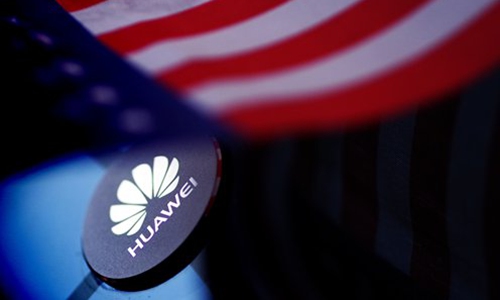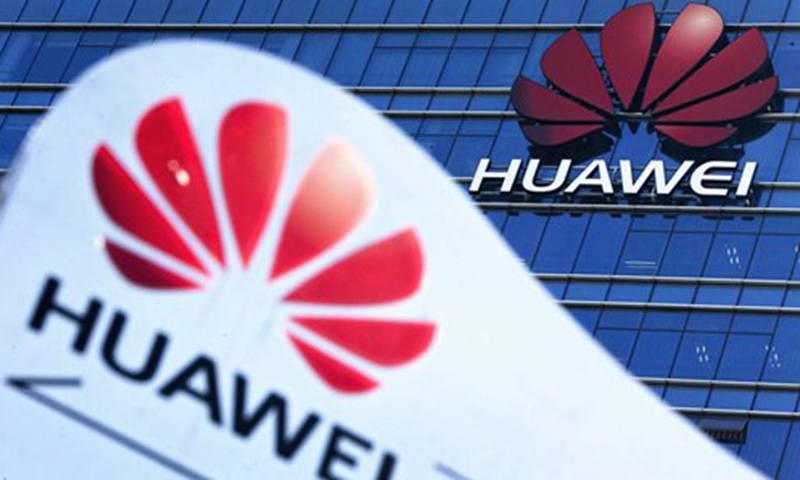US legislation to replace Huawei equipment to cost billions of dollars
By Wang Cong and Chen Qingqing Source:Global Times Published: 2019/12/17 21:38:40

Photo:IC
Legislation passed by the US House of Representatives apparently aimed at barring the US government from buying telecommunications equipment from Chinese telecom firm Huawei will have a limited impact on Huawei but could cost US taxpayers billions of dollars, Chinese analysts said on Tuesday.
In another apparent attempt to crack down on Huawei, the US House passed the Secure and Trusted Communications Networks Act, which, if enacted, would prohibit the US Federal Communications Commission (FCC) from using funds to purchase telecom equipment from companies that the US deems to pose a national security threat, US newspaper the Hill reported on Monday.
The bill, which still requires passage through the US Senate and approval by the US President Donald Trump before becoming law, also asked the FCC to set up a $1 billion program to help small and rural communications operators to replace "suspect network equipment," according to the Hill.
The legislation, even it became law, would have a limited impact on Huawei, given that the Chinese company has already been largely forced out of the US market, except for supplying some telecom network equipment to some small, rural areas, according to the analysts.
"It is not Huawei that needs the US market… because its market in the US has been squeezed to very small," Shen Yi, a professor at Shanghai-based Fudan University, told the Global Times on Tuesday.
Huawei was helping set up 5G networks around the world and rejecting Huawei would slow US rollout of the ultra-fast network, Shen said.

The logo of China's tech giant Huawei. Photo: Xinhua
Despite US officials' global campaign against Huawei, the Chinese company has been making steadfast progress in its global push in the deployment of 5G.
Last week Telefonica Deutschland, a unit of Spain's Telefonica, opted for Huawei to build its 5G network in Germany.
Not only will the US House bill fail to contain the Chinese firm's global rise, it will also cost US taxpayers billions of dollars and potential 5G delays in smaller, rural areas, according to Jiang Junmu, chief writer at Chinese telecom industry news website c114.com.cn.
"Without the participation of Chinese suppliers, the market price for [equipment] will rise significantly," Jiang told the Global Times on Tuesday.
According to some estimates, the US plan to replace all Chinese telecom equipment in rural areas could cost as much as $2 billion, Jiang said.
However, the legislation could complicate Huawei's legal battles against the US government.
Earlier this month, the company announced a lawsuit against the FCC ban on US carriers from buying Huawei equipment using US federal subsidies.
If the US House bill becomes law, Huawei's case against the FCC may be moot: Even if the FCC violated Huawei's due process, the new law would impose similar bans against the Chinese tech giant.
Huawei's next move would be to sue the US on the grounds such a law was unconstitutional, Yue Dongxiao, a US-based lawyer who closely observes the Huawei lawsuits with the US government, told the Global Times on Tuesday.
"Proactively defending itself in courts turns out to be effective for Huawei," he said.
"It can force the US to admit in court that it has no evidence against Huawei and has not found Huawei guilty."
Huawei did not respond to a request for comment on the US House legislation as of press time on Tuesday.
RELATED ARTICLES: